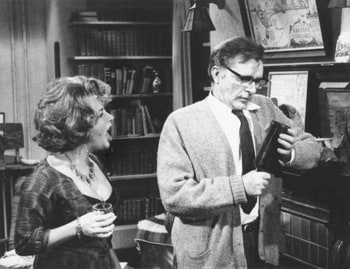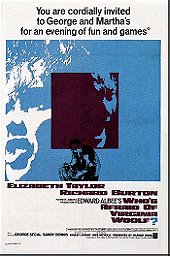This film has a wonderful rhythm, with a fantastically progressive plot. Not many motion pictures can captivate its audience based on few locations and a dialogue heavy script, yet this film succeeds, despite its often dense themes. It’s a troubling experience and one you must commit to, or else you will find yourself unable to fully move with the flow of the film. As the film continues, we are dragged into an increasingly surreal plotline, making this one of the most surreal non-fantasy related films of all time. There are no particular unrealistic moments, setting it apart from the surrealism explored by the likes of David Lynch and Luis Buñuel. Instead, it draws upon the strangeness you find in everyday life to turn this into a tense exploration into the lives of these characters. Speaking from personal experience, I once went into work to find everything had been put into a surreal blender and whilst, of course, there was nothing metaphysically strange, it certainly felt off-kilter. This is much like the film, all of which is within the realms of the real world, only it feels uncanny.

The acting, as you would expect with two Hollywood royals in the mix, is superb. Not a bad performance in the film. Burton and Taylor were born for their roles, each delivering painfully emotional performances. Burton is the extravagant and provoking husband, similar in ways to the popular television character Gregory House (House M.D), only far more perturbing. Taylor is the unbalanced and bitchy wife, who takes no shame in humiliating her husband. Opposite them are Segal and Dennis, each delivering worthy performances. Segal is restrained, each line spoken with a subtle emotion. This juxtaposes with Dennis, who is perfectly acute, delivering a hyperbolic performance that, in any other film, would come across as over-acting, whereas here it is entirely necessary. As far as ensembles go, this is right up there with 12 Angry Men (1957), Magnolia (1999) and Pulp Fiction (1994).
The directing is sublime. Mike Nichols, who would later find huge success with his better known masterpiece The Graduate (1967), doesn’t ever over-play a scene with too many unnecessary close-ups or quick shot successions, instead favouring a more steady directorial style similar to that of Kubrick and Lang. The camera will pan, track and remain static only ever being obtrusive when needed. His style isn’t as abrasive as the more mainstream films of the time, preferring to compliment the themes of the film, rather than over power them.

It’s the screenplay that is the strongest link, though. Each line is a masterpiece in its own right, and that isn’t an exaggeration. Its vivid characterisation and biting, cynical and darkly humorous dialogue makes this one of the best written films of all time. The play on words, risqué innuendos and even flat out unconcealed brusque references, helped propel the American film industry out of the dictatorship known as the Hays code. This was amongst one of the most important of all sixties US films, alongside Bonnie and Clyde and its then unseen portrayal of bloody criminal violence. These two gave audiences glimpses of what was to come and I suspect movie-goers would have sat in shock. Even by today’s standards, some of the scenes are unsettlingly blunt. Based on the Edward Albee play, Ernest Lehman fought with producers to allow him to adapt the play as truthfully as possible and to keep the artistic vision uncompromised. To say he was a success would be an understatement.
Everything about the film is perfect, including the title itself, alluding to famed English writer Virginia Woolf, who had a lot of wise insights about gender and relationships. As a result, the title is a fantastic, sharp and witty accompaniment to the themes of the film.

Simply put, Who’s Afraid of Virginia Woolf? is a daring classic and a true testament to the new outlook of life that was breeding in the sixties, with the help of such cultural icons as The Beatles and The Rolling Stones. With its deeply Freudian themes and bleak yet comical study of human nature, this is an important, iconic and unforgettable classic.
10/10
 Login
Login